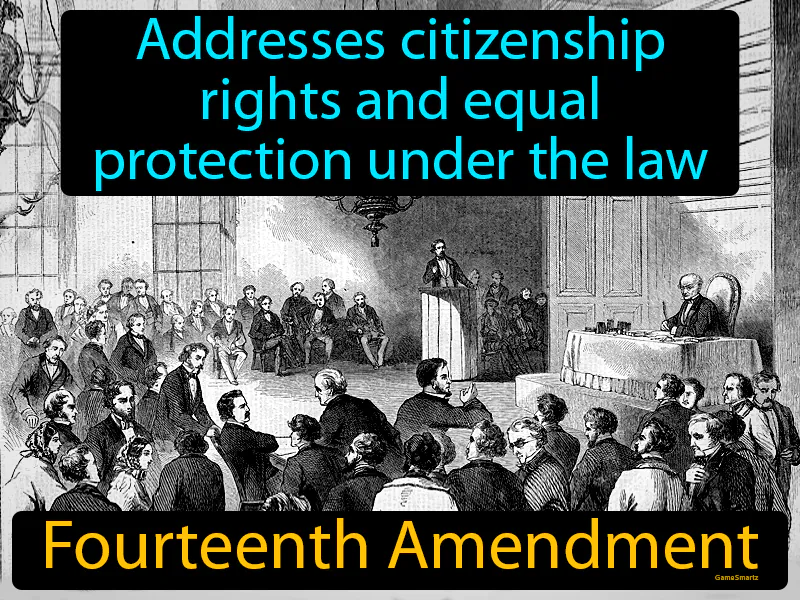Fourteenth Amendment
Fourteenth Amendment: Easy to understand
The Fourteenth Amendment, adopted in 1868 after the Civil War, was crucial in granting citizenship to all people born or naturalized in the United States, including former slaves. It responded to the need for equal protection under the law, especially for newly freed African Americans who faced discrimination and unequal treatment. Its importance lay in ensuring that states could not deny any person their rights, forming a foundation for civil rights in America. Today, the Fourteenth Amendment continues to influence everyday life by protecting people from discrimination based on race, gender, or other characteristics. For example, if a school tries to prevent a student from attending because of their ethnicity, the Fourteenth Amendment can be used to challenge this unfair treatment and ensure equal educational opportunities for everyone.

Practice Version

Fourteenth Amendment: Addresses citizenship rights and equal protection under the law. Fourteenth Amendment. The Fourteenth Amendment, adopted in 1868, ensures that all people born or naturalized in the U.S. are citizens and have equal protection under the law.